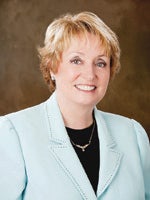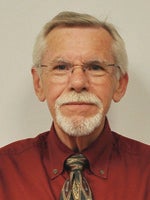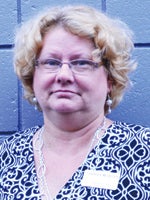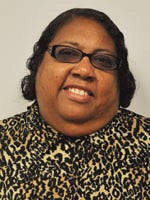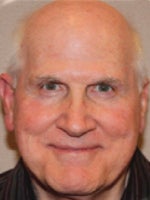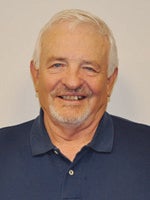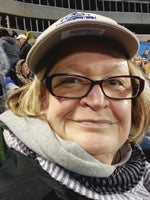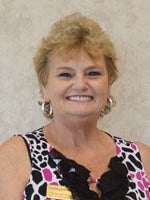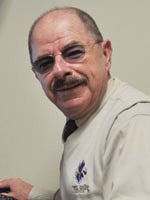50 YEARS TODAY: Locals recall the day JFK died
Published 8:45 pm Thursday, November 21, 2013
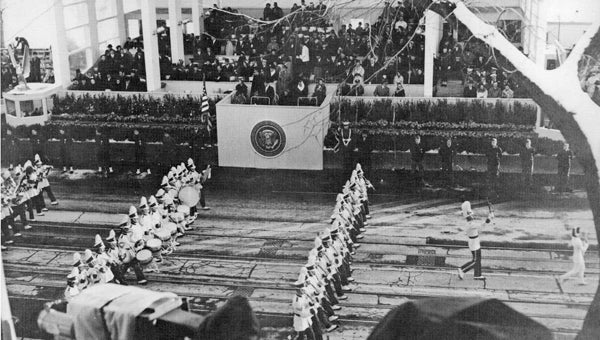
MARTHA LARKIN | CONTRIBUTED
WHS MARCH ON D.C.: The Washington High School Marching Band played during President John F. Kennedy’s inauguration on Jan. 20, 1961. “It was extremely cold — they about froze to death waiting of the parade to proceed,” said Martha Larkin, daughter of the band director at the time. “The band was so very good at that point and had been to the World’s Fair in Canada and they were quite renowned. It something that the whole town should be proud of, certainly.” If you were a member of the WHS band that played for President Kennedy’s inauguration and would like to share your story, email news@thewashingtondailynews.com or call 252-946-2144, ext. 240.
On Nov. 22, 1963, the world stopped. The world watched as Walter Cronkite announced the death of President John F. Kennedy on television. And the world mourned.
Today’s date became lodged in the memories of entire generations — it was never a question of whether a person remembered the day, only how they remembered it. Just as Dec. 7, 1941, the day the Japanese bombed Pearl Harbor, was a defining moment for or one generation, so was an American president’s assassination for another. Sept. 11, 2011, would have the same affect on yet later generations.
In Washington, N.C., Attorney Billy Mayo remembers hearing the news on the corner of Market and Second streets, where he still has offices today. He said the people of Washington, like the rest of the nation, were glued to their televisions.
“We all watched our black and white TVs, trying to find out what the heck happened,” Mayo said. “It was like a bombshell.”
Fifty years later, theories still abound as to what really happened the day Kennedy was assassinated. This week, boxes of documents and artifacts about Jack Ruby, the man who would shoot and kill Lee Harvey Oswald, Kennedy’s shooter, on Nov. 24, 1963, were released for the first time. Since Congress passed the President John F. Kennedy Assassination Records Collection Act of 1992, nearly five million pages of records relating to the assassination have been released, but over 1,000 remain classified, in the interest of national security. Many believe the continued secrecy, especially on the part of CIA, has given rise and fueled conspiracy theories surrounding Kennedy’s death.
Regardless of whether a person believes the Mafia, Castro, CIA, the Soviets or a spurned husband conspired with Oswald to kill a President, the memories of that day remain unchanged. Each story is different, yet the same. Even 50 years later, they are etched with clarity. Here are some of them from the staff at Beaufort County Community College, as collected by Betty Mitchell Gray.
BCCC President
I was on the front row of a freshmen government class with Coach Fairchild. It came over the intercom (yes, we had them back then) that President Kennedy had been shot. Coach flipped the television on and we sat and watched the news until the end of class.
Vice President of Continuing Education
I was in Mrs. Shakleford’s seventh period class at Harvey Junior High School in Kinston, N.C. She was called out of the room and when she returned, she was crying. She then announced to the class what had happened. It was also, I remember, the day when report cards went home. I had learned earlier in the day that I had made my first ever grade of “D.” It was in Algebra — no surprise to those who know me well. I knew that I was going to be in a lot of trouble when I got home. However, my parents were consumed by the news on television (black and white) that they expressed their dissatisfaction of the grade (D), but simply said, “Try to improve this by the next report card period.” Although saddened by the event of the day, it did spare me an encounter with my Dad that on any other day would have been different.
Career Center Director
For me, I was 13 years old and in California at my grandparents’ home in Riverside. My father was relocating from a base at Duluth, Minn., to a base outside of Charleston, W. Va. We were taking a break and visiting my mother’s family in between the change. I was outside swimming in their pool and had just come in the house when someone said the President had been shot. My grandparents had a small den in the front of their house where my grandfather was allowed to smoke his cigars. That was where everyone was crowded, into this tiny smoke-filled room, watching a black and white TV. My father was parked on an ottoman in front of the TV and fixed. Walter Cronkite took off his glasses, and looked at the clock in the studio, and choking back the tears he said the famous words, “President Kennedy died at 1 p.m. Central Standard Time.” It was the first time that I ever saw my father cry. We watched all the events unfold for the next four days from that tiny smoke-filled room in California. It was true reality TV for the first time in history when we saw Jack Ruby shoot Lee Harvey Oswald in the basement of the police station. I remember thinking, “There goes the truth hidden and sealed forever.” However, when I saw that little boy, John-John as we knew him then, step in front of his mother and sister to salute, I sobbed. I will never forget the sounds of the drums on the march to the cemetery, and the riderless horse’s hooves as they clicked on the pavement. It went on and on and on. It was very much like the funeral for Diana with the deafening silence and the sobbing of people along the route.
My senior year we had to do a term paper. Mine was on the four days in November of 1963. I have followed the life of JFK’s family story since that terrible day in Dallas.
Allied Health Office Manager
I was sitting in class at Mineola Elementary School. My teacher, Mrs. Ruth Brown, was writing on the bulletin board when the announcement came over the intercom. She and other teachers gathered in the hallway, crying with disbelief. We had to go to assembly so the principal, Mr. Randolph, could talk with all of us. Even though at 11 years old I knew about death, I don’t think I and the other students understood the concept of what this tragedy really meant at that time.
Project Coordinator North Carolina Advanced Manufacturing Alliance
I was a young soldier in the 101st Airborne Division, stationed at Fort Campbell, Ky. Dolly and I had been married a little over two years, and rented a small house just outside of the base in Clarksville, Tenn. That particular day I was driving home for lunch, listening to the radio. I heard the news flash breaking into the regular programming that President Kennedy (visiting Dallas, Texas) had been shot. Beyond that, I recall the buzz of conversation among all the troops. The 101st had a keen interest in the President, having been a factor in operations planning surrounding both the Bay of Pigs Invasion and the Cuban Missile Crisis.
Marketing Coordinator
I was in my high school English class. Dot Powell, my teacher, was an ardent supporter of President Kennedy and I remember her openly weeping when she came into the class with the news. Her husband was a Kennedy political appointee and she had personally met the President, so she felt a very personal sense of loss. Like many of my fellow students, the enormity of the event did not really strike home for me until that evening when I began to see the CBS news coverage. And now, as I view the historical documentaries 50 years later, the impact seems even greater for me than it was earlier in my life.
Public Relations Coordinator
I was in Margaret Buck’s fifth grade class at John Small School on John Small Avenue in Washington. Every so often, Spanish language students at Washington High School would visit our classroom for a short Spanish lesson. The high school students had finished the lesson and had left the classroom. On their way out of the building, they had heard on the radio in the school library that the President had been shot. The two ran back into the classroom and delivered the news. Later that day, I was home and our black and white television was showing a silhouette of President Kennedy. My mother’s good friend, Florence Jones, was watching television with me and held her hand to the side of her face and just shook her head in disbelief that something like that could happen.
Student Activities Coordinator
President Kennedy was assassinated during the time my mother passed away. For years, in my mind I thought they died the same day. I can remember the sadness and concern from the adults around me. I grieved for both my mother and our President. Tears come to my eyes now as I recall the emotions experienced and the lost I endured during that time of my life. It wasn’t until I was older that I realized that he died eight months prior to my mother — I was eight years old.
Co-Operative Education Coordinator
I was in eighth grade outside of Washington, D.C. Heard it first after school but they got the guy, Lee Harvey Oswald, later that day. A few days later, saw the first live televised murder in history of Oswald by Jack Ruby. Before President Kennedy’s funeral, his body was in the Capitol Rotunda and my parents went downtown to see it. The line at night was wrapped several times around the Capitol and it took them many hours standing in the cold to get inside for a brief peek. The day of the funeral was quite something. The world stopped, there were church services. I think it was a workday but there was no school, and it was all on TV, which was a big deal back in the day, remember this was 1963. Still very sad to recall.


